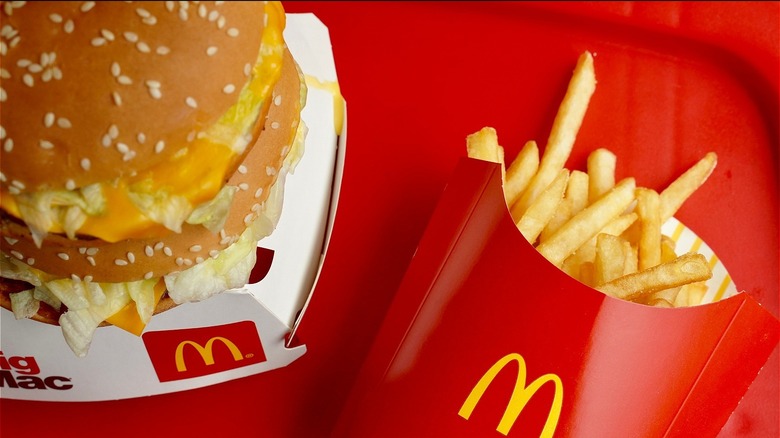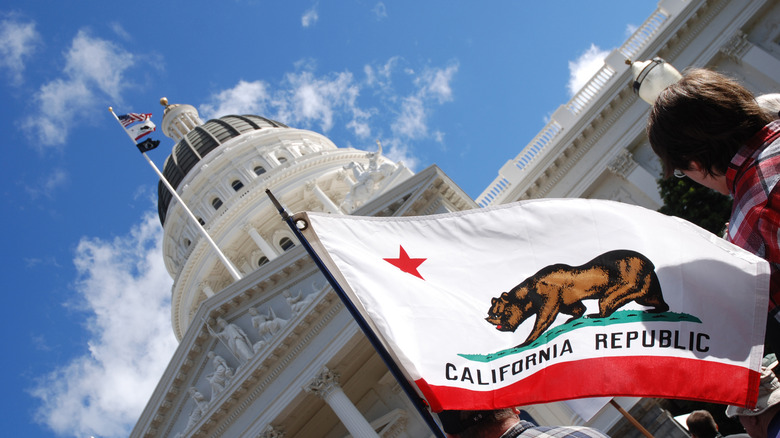McDonald's Takes A Controversial Stance On California's New Fast Food Bill
Earlier this week, the California State Senate passed a bill that could change quick-service restaurants forever. Deemed the "The Fast Food Accountability and Standards Recovery Act," or FAST Act for short, the bill aims to give workers and unions a role in setting wage and hour standards at California fast-food chains with more than 100 locations nationally. At the same time, it holds franchisors jointly and separately liable for any violations by their franchisees (per the National Restaurant Association).
While the first draft of the FAST Act didn't win the approval of California's State Assembly, Nation's Restaurant News reports that it was ready for Governor Gavin Newsom's signature "after some amendments" that lean "more pro-business" than its original rendition, including a minimum wage cap of $22 per hour in 2023. While there's huge support behind the bill, the fact that it needed tweaking to begin with betrays the stance of its critics. One such critic is McDonald's, which released a controversial statement about the bill this week.
McDonald's president calls FAST Act 'backroom politicking'
After weeks of urging its franchisees to lobby against the bill in California and around the country (per The New York Times), McDonald's lost its battle against the FAST Act. Joe Erlinger, the president of McDonald's U.S., released a public letter that wrote off the bill as a result of "backroom politicking," claiming that it could, "drive up the cost of eating at a quick-service restaurant in California by 20%."
Erlinger's main beef with the bill isn't with the wage increases it would allow for through its 10-person council, but rather, the particular scope of its jurisdiction. "It imposes higher costs on one type of restaurant, while sparing another," he writes. Erlinger also claims to support legislation that, "[requires] mandatory training around safe, inclusive and respectful workplaces," but again, argues that, "all restaurant workers [should] benefit," not just those who work at large corporations like McDonald's.
Erlinger received criticism of his own back in June, when he overturned a policy that allowed McDonald's franchise owners to maintain their tenure for 20 years (per Restaurant Business). According to a National Owners Association poll cited by CNBC, nearly 100% of surveyed franchisees opposed the change. As for the FAST Act: We don't know about franchisees, but it's safe to say that many McDonald's cashiers and fry cooks in California will be happy to see the bill reflected in their paychecks and workplaces.

